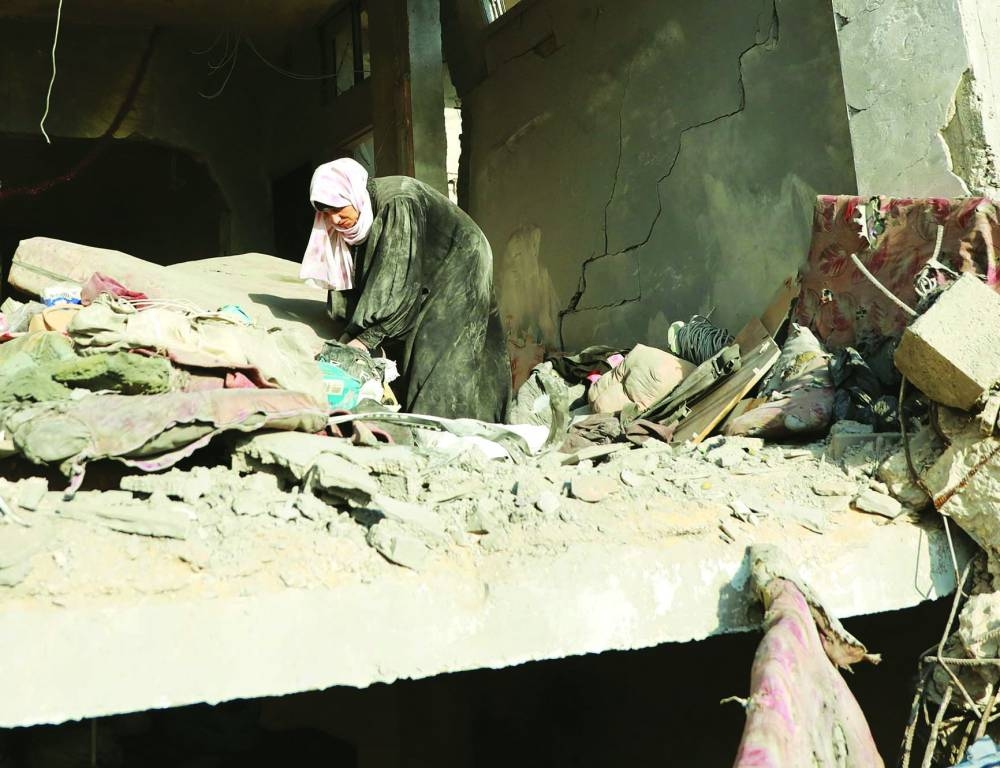Large groups of women and children are scavenging for food among mounds of trash in parts of the Gaza Strip, a UN official said yesterday following a visit to the Palestinian enclave.
Ajith Sunghay, head of the UN Human Rights office for the Occupied Palestinian Territories, expressed concern about the levels of hunger, even in areas of central Gaza where aid agencies have teams on the ground.
“I was particularly alarmed by the prevalence of hunger,” Sunghay told a Geneva press briefing via video link from Jordan. “Acquiring basic necessities has become a daily, dreadful struggle for survival.”
Sunghay said the UN had been unable to take any aid to northern Gaza, where he said an estimated 70,000 people remain following “repeated impediments or rejections of humanitarian convoys by the Israeli authorities”. Sunghay visited camps for people recently displaced from parts of northern Gaza. They were living in horrendous conditions with severe food shortages and poor sanitation, he said.
“It is so obvious that massive humanitarian aid needs to come in - and it is not. It is so important the Israeli authorities make this happen,” he said. He did not specify the last time UN agencies had sent aid to northern Gaza.
US Secretary of State Antony Blinken and Defense Secretary Lloyd Austin set out steps last month for Israel to carry out in 30 days to address the situation in Gaza, warning that failure to do so may have consequences on US military aid to Israel.
The State Department said on Nov 12 that President Joe Biden’s administration had concluded that Israel was not currently impeding assistance to Gaza and therefore was not violating US law.
Israel’s government body that oversees aid, Cogat, says it facilitates the entry of humanitarian aid into Gaza, and accuses UN agencies of not distributing it efficiently. Looting has also depleted aid supplies within the Gaza Strip, with nearly 100 food aid trucks raided on Nov 16.
“The women I met had all either lost family members, were separated from their families, had relatives buried under rubble, or were themselves injured or sick,” Sunghay said of his stay in the Gaza Strip.
“Breaking down in front of me, they desperately pleaded for a ceasefire.”

A Palestinian woman stands inside a destroyed building after Israeli forces withdrew from a part of Nuseirat, following a ground operation amid the ongoing conflict between Israel and Hamas, in Nuseirat, central Gaza Strip.
